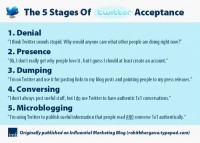Crap like this:
(audio version)
Letter of the Law
May 09, 2008
Last November the FBI used a top secret National Security Letter to demand user information from the Internet Archive, an online library. Internet Archive co-founder Brewster Kahle decided not to comply. Instead he sued and the FBI backed down. Kahle describes what it’s like to challenge an NSL.
BOB GARFIELD: Last fall, an online library of webpages called the Internet Archive received a National Security Letter, or NSL, from the FBI. It’s a secret demand for information, and when the government issues one the recipient can’t talk about it, can’t even acknowledge that it exists, except to his or her lawyer.
In this case, the FBI wanted the email address, contact information and usage information for an Internet Archive user. The Archive chose not to cooperate and instead was the third recipient of a National Security Letter to fight the government in court. And this week, the government settled.
By now, Internet Archive co-founder Brewster Kahle is well versed in all things NSL, but last November, when he first heard from his lawyers at the Electronic Frontier Foundation about the FBI’s demand, he faced a serious decision.
BREWSTER KAHLE: The Electronic Frontier Foundation — it’s like an ACLU for the digital world — wasn’t able to call us and tell us about it. They actually had to physically come over because as part of the gag order, the lawyers representing us couldn’t use the telephone to discuss this.
So the EFF lawyers came over and talked to me about it, and it then put me under a gag order. I couldn’t discuss it with the board, any of the other staff members. I couldn’t even discuss the issue with my wife.
I had to make a decision of whether to give patron information over to the FBI or do what libraries do and protect their patrons and go against the United States government.
BOB GARFIELD: It’s hard to even fathom the frustration that you must have felt. But, unlike almost everybody else who has gotten such a letter, you did something about it. How did that play out?
BREWSTER KAHLE: The Electronic Frontier Foundation, with the ACLU and the Internet Archive, decided to file suit to go and stop this demand and get some judicial review. If a judge had gone and said that they need certain information, then we would have tried to comply. But this has gone completely outside of the judicial system as it stood.
So we fought back against it, and not only did they decide then to withdraw their information request, they didn’t want a judge to decide whether this whole law was constitutional. So they wanted to settle. The only way that we would be willing to settle is so that we could talk about this and remove the gag order.
BOB GARFIELD: Now, previously, a recipient of a National Security Letter did litigate the matter and did win, and the court ruled that such letters are unconstitutional. But the government appealed that ruling, so the final result is pending.
In the meantime, what you’ve done is published what you call [LAUGHS] a cookbook for how to deal with an NSL, should you be unfortunate enough to receive one.
BREWSTER KAHLE: The first step is to go to one of these pro bono firms, like EFF and ACLU, and you can file a lawsuit. It’s legal, perfectly legal to push back on these, to get a court to go and say whether it’s actually required.
And if you go through that, in every circumstance they’ve been washed away.
So there’s now a cookbook of the forms that they use and how you can go about pushing back on these — is now all up on public websites.
BOB GARFIELD: When you spoke to the EFF about this and discussed your options, did you consider the idea of just going public and risking prosecution from the outset?
BREWSTER KAHLE: No. The jail sentence is kind of onerous, but the wondrous thing is the EFF and the ACLU didn’t blink. They said, of course, we’re going to help you with this. Because imagine what the alternative would be. If I’m running a library, I can’t even tell anybody about this. If I started incurring legal bills, I’d have to explain it to the board. There’d be no way to deal with getting this in front of a judge without incurring tens of thousands of dollars.
BOB GARFIELD: And yet, when the Congress learned that the FBI has been issuing these letters indiscriminately, Congress didn’t seem to get all that exercised about it. I mean, for example, this provision to date has not been repealed. Do you know of any attempts in Congress to deal with this particularly terrifying tool for a federal police agency?
BREWSTER KAHLE: In 2006, they tried to make some exemptions for libraries, but then a library gets served with one of these things. It’s still happening. And, unfortunately, because of the hyper-secrecy of this, there have been 200,000 of these requests over a course of four years. So 50,000 a year are being issued, and there are only three that have actually been challenged.
BOB GARFIELD: The FBI apparently, when they issued the letter to you, did not regard the Internet Archive as a library, I guess. I mean, I don’t know what they thought of your vast digital repository of — is it every page that has ever appeared [LAUGHS] on the Internet?
BREWSTER KAHLE: Yeah.
BOB GARFIELD: But they weren’t thinking of it as a library. So when they settled with you, was it because the scales had finally fallen from their eyes and they realized that they had overreached and abused the National Security Letter privilege or because they realized they’d been caught on a technicality — oh, I guess he’s a library after all?
BREWSTER KAHLE: We don’t know. The speculation is that they just don’t want these cases brought before a judge. And there are perfectly reasonable warrants and subpoena approaches for getting information that you need. These are just a shortcut that they use currently, and they’re using it wildly. And that’s the reason why we pushed back, so that people can start to see what it is that’s going on out there.
BOB GARFIELD: All right, Brewster. Well, thank you very much.
BREWSTER KAHLE: Thank you. Appreciate the time.
BOB GARFIELD: Brewster Kahle is director and co-founder of the Internet Archive.
and this:
(audio version)
Scott Bloch(ed)
May 09, 2008
The Office of the Special Counsel is supposed to protect government whistleblowers, but watchdog groups charge that under director Scott Bloch the agency has been ineffectual and worse. The FBI raided Bloch’s office this week amid these allegations. Jeff Ruch, director of Public Employees for Environmental Responsibility, describes the investigation.
BROOKE GLADSTONE: And I’m Brooke Gladstone. Three years ago, we interviewed Scott Bloch, Chief of the Office of Special Counsel. That’s the government agency that is supposed to shield civic-minded government whistleblowers from retaliation. We had him on to answer charges from watchdog groups that he was burying investigations and politicizing his office. He denied it.
SCOTT BLOCH: Sometimes I wonder if you have to fall through the rabbit hole to live in Washington. Things seem to be turned on their head in the media. The truth is I took an oath of office to defend whistleblowers and to take the meritorious claims and push them to the limit. And that’s exactly what we’re doing.
BROOKE GLADSTONE: But controversy once again swirls around Bloch. This week he was back in the news, when FBI agents raided his home and office, seized computers and issued subpoenas to 17 employees. One of the organizations that first blew the whistle on Bloch was Public Employees for Environmental Responsibility. Executive director Jeff Ruch says his group’s complaint ultimately led to the FBI raid.
JEFF RUCH: The Special Counsel is, as we understand it, being charged with obstructing the investigation into our complaint.
BROOKE GLADSTONE: What was your original complaint back in 2005?
JEFF RUCH: It was a multipart complaint that involved purging the staff, retaliating against whistleblowers, issuing illegal gag orders, improper refusal to enforce laws and politicizing the Hatch Act enforcement.
We filed this complaint back in March, 2005, and we still don’t have the results of that investigation. What we have is this interim step where the FBI has now intervened.
BROOKE GLADSTONE: So do you suspect that there was actually criminal misconduct going on in the Office of Special Counsel?
JEFF RUCH: There have been many media reports about his efforts to obstruct the investigation, prevent his staff from interviewing with investigators as well as destroying documents on office computers. All of those could potentially fall under the realm of criminal misconduct — so, yes.
BROOKE GLADSTONE: Another one of Bloch’s responsibilities was to enforce the Hatch Act, which prohibits federal employees from engaging in partisan political activity. But wasn’t one of the principal charges against him that he politicized his own office?
JEFF RUCH: Yes. What he was accused of doing by his own staff was blocking investigations of prominent Republicans, like Condoleezza Rice, and pushing investigations in the activities of prominent Democrats, like Senator John Kerry.
BROOKE GLADSTONE: Before we go any further, what does the Office of Special Counsel do? Is this really the high moral accountability office?
JEFF RUCH: He is supposed to be the guardian of the merit system, the merit system being the principles that govern federal service. And it’s a very important office that Congress invested with a certain amount of independence in that the person cannot be removed by the whim of the president. He may only be removed by the president for cause.
Mr. Bloch has told people that the White House has twice previously asked him to resign, and he’s refused.
BROOKE GLADSTONE: Really? Why do you think it asked him to resign?
JEFF RUCH: Scott Bloch has been accusing the White House of being part of a gay rights conspiracy to persecute him. He took a position that the laws against discrimination on the basis of sexual orientation couldn’t be enforced, and it was a position that, from what we could tell, didn’t match with the law and was reversed on the order of the White House.
And the Bush Administration’s not really known to be a proponent of what some would call the gay rights agenda, and so it took a fairly extreme position for their intervention. That appeared to start a cascade of bad blood that may have culminated in recent events.
BROOKE GLADSTONE: We spoke to you in 2005. You said then that Bloch had dismissed 1,000 whistleblower cases without investigating them. Did that pattern continue despite the complaints against his office?
JEFF RUCH: Well, yes. Even though it’s the Office of the Special Counsel, not once during Scott Bloch’s tenure did they go to an administrative body and represent a whistleblower. So they never acted as a counsel.
BROOKE GLADSTONE: Not one time?
JEFF RUCH: Not one time.
BROOKE GLADSTONE: You would say, then, that the people that he was supposed to protect, that is, government employees who are trying to blow the whistle on government misconduct, could find very little aid or comfort in his office.
JEFF RUCH: Whistleblowers have, in essence, been abandoned by the Office of Special Counsel, and never in the history of the federal government, in my view, have whistleblowers needed a champion more than during the Bush years.
We’re taking the position not only should Scott Bloch be fired but Congress should consider abolishing the office and starting over again. It’s to the point where this institution is now so compromised and distracted and paralyzed that it may be worse than nothing.
BROOKE GLADSTONE: If you really think that maybe the office should be eliminated and we should start all over again, what kind of replacement office would you create?
JEFF RUCH: We would design a system that would give the whistleblower much more autonomy over their own case and fate rather than depending upon a federal official to come in and save them, if you gave them the options – that would range from mediation to litigation to resolve their complaints – and take the remaining functions of the Special Counsel and put it in agencies that are competent, like the GAO, or moving Hatch Act prosecutions back to the Justice Department.
Certainly for the next few months, you’re not going to see anything productive out of an office where a fifth of the remaining staff have also gotten subpoenas to testify before a grand jury against the person who’s supposed to be supervising them. And if you’re a whistleblower that depends upon this institution, it’s just a recipe for disaster.
BROOKE GLADSTONE: Jeff, thank you very much.
JEFF RUCH: You’re welcome.
BROOKE GLADSTONE: Jeff Ruch is the executive director of Public Employees for Environmental Responsibility.



